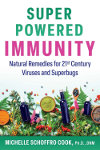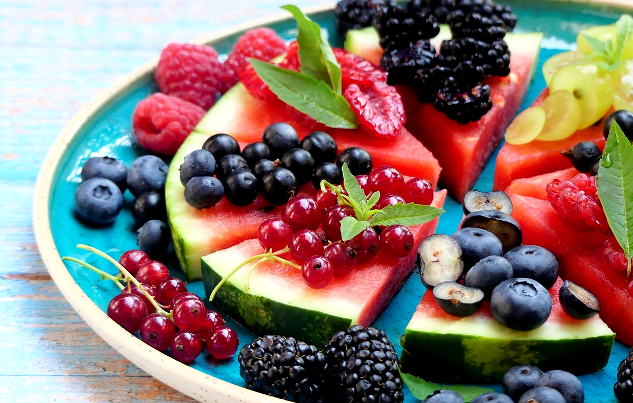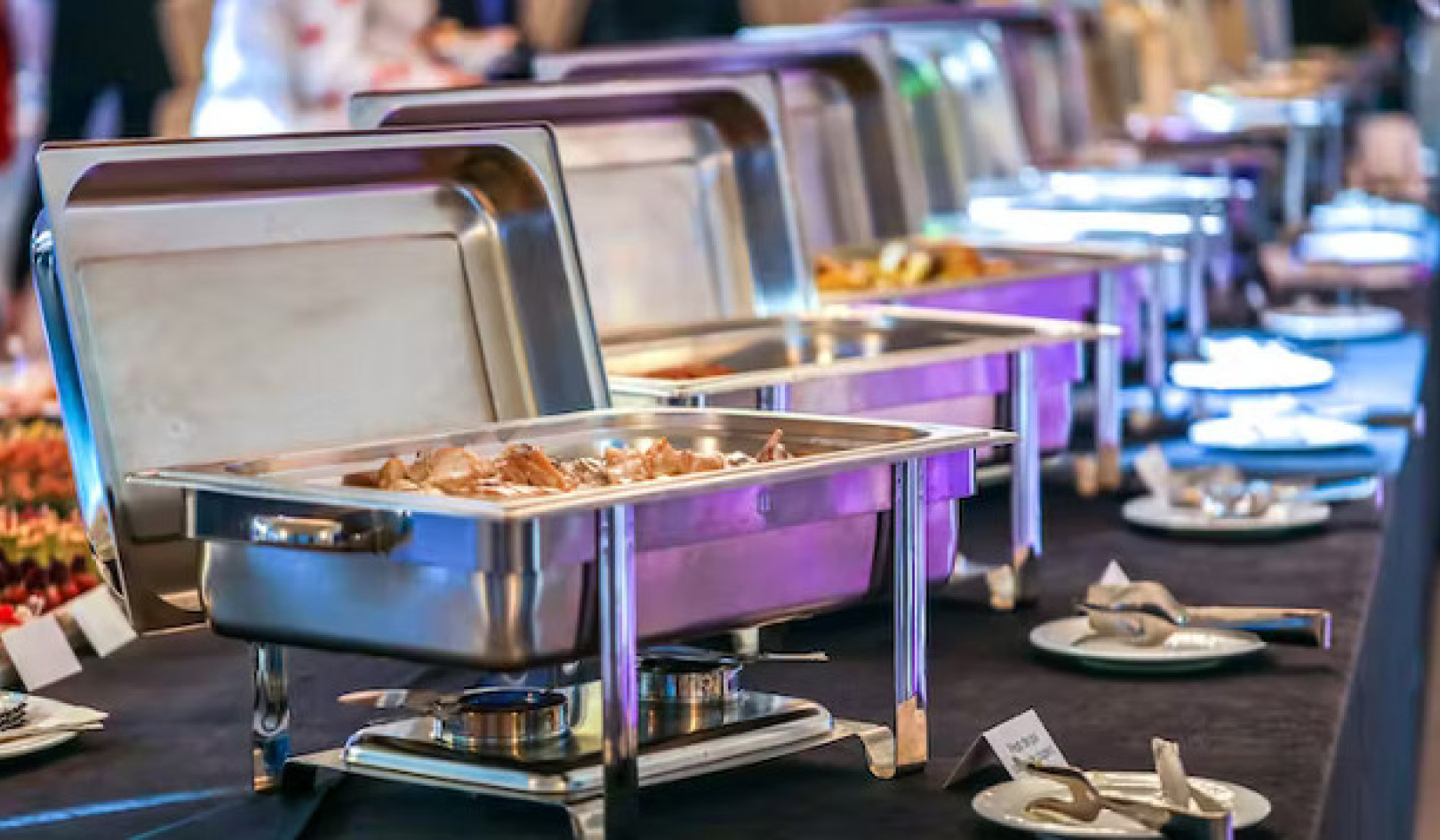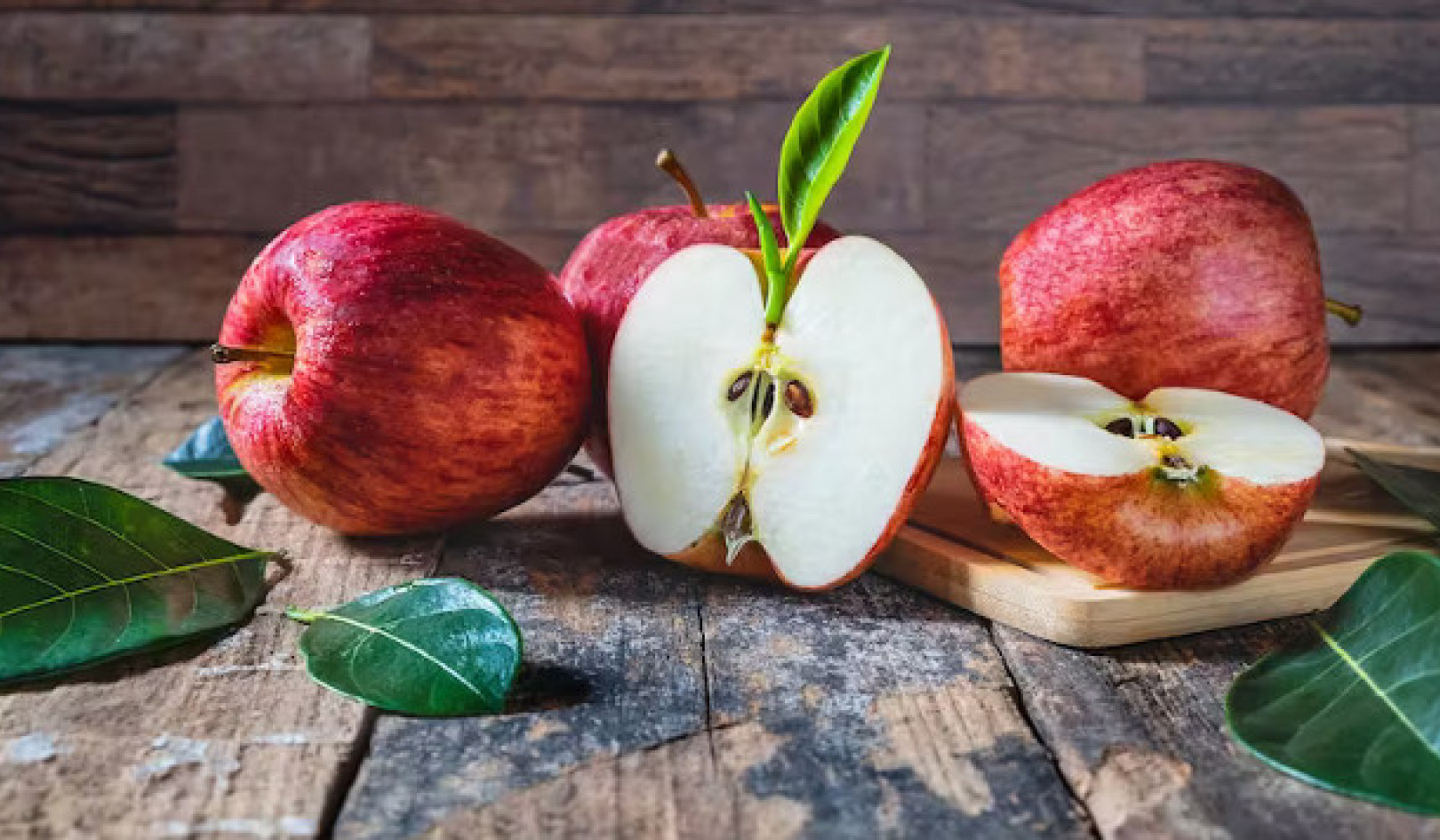Before I share my picks for the top nine immune-boosting breakfasts, it is important to consider that what you eat is as important as what you don’t eat. Skip the sugary donut, Danish, or breakfast cereals. Even a small amount of sugar can depress your immune system for as long as four to six hours. So regardless of which breakfast you choose, keep it low in sugars of all kinds—both refined and so-called “healthy” sweeteners, since they all have the same immune-lowering effect.
Here are some breakfast ideas to make your first meal of the day a powerhouse immune-booster:
Start with a Glass of Water with Lemon, Lime, or Grapefruit Juice:
These juices are high in immune-boosting vitamin C and the antiviral phytonutrients called terpene limonoids that help give cold and flu viruses the boot.
Enjoy a Spanish Omelet or Spanish Tofu Scramble:
Be sure to boost its healing properties by adding allicin-containing onions and garlic and vitamin-C-rich tomatoes and red peppers. Add a pinch or two of turmeric to give your tofu or eggs a brilliant yellow color while also adding an extra punch to any viruses you may have been in contact with.
Go for Granola:
Most commercial granola is loaded with immune-suppressing sugar or high fructose corn syrup. Instead of these packaged options, make a simple immune-boosting granola from oats, flax seeds, sunflower seeds, pumpkin seeds, cinnamon, chopped almonds, a touch of honey or pure maple syrup (just a bit), and a little coconut oil or olive oil. Mix together and bake at 300 degrees until lightly browned (about ten to twenty minutes). Allow to fully cool and store in an airtight container for up to a week. Eat on its own or add almond milk. The essential fats found in flax and pumpkin seeds are needed for a healthy immune system. Pumpkin seeds add a dose of zinc, which is also critical for immune health.
Savor a Sweet Potato Hash:
Made with sweet potatoes, onions, garlic, red peppers, and beta-carotene- and vitamin B6-containing kale, sweet potato hash can give you important nutrients to build your immune system. Sweet potatoes contain vitamin B6, which is an important immune-system strengthener, along with beta carotene, the precursor of immune-building vitamin A, and even a vegetarian source of vitamin D, which reduces the risk of catching a cold or flu and speeds recovery.
Go for a Side of Grapefruit:
This fruit is packed with vitamin C and antiflu phytonutrients known as terpene limonoids. These compounds are naturally antiviral, giving your immune system assistance to fight infection.
Brown Rice with Almond Milk and Cinnamon:
Brown rice is a good source of vitamin B6, which protects the lungs against foreign invaders. Brown rice also contains the potent antioxidants vitamin E and zinc.
Cooked Quinoa or Oats with Apples:
Protein-rich quinoa doesn’t need to be reserved for lunch or dinner. Give it a breakfast twist by adding chopped apple during the cooking process. Alternatively, opt for oatmeal. Be sure to sprinkle cinnamon over your breakfast for an anti-infectious boost.
Go Green (Tea, That Is):
There are dozens of reasons to drink green tea, but during the colder seasons or when you’re trying to prevent or treat infections, there are even more. So, it’s a great idea to finish off your immune-boosting breakfast with a hot cup of green tea sweetened with the herb stevia (to avoid immune crashes linked to sugar).
Potent Immune-Boosting Foods to Add to Your Daily Diet
You learned about many great immune-boosting foods, but there are a few that stand above the crowd. And, fortunately, they’re delicious too, so keeping your immune system strong and healthy never tasted so good. Some of the best immune-boosting foods include:
Beets: Rich in the immune-boosting mineral zinc, beets, along with their leafy greens, are a great addition to your diet. Beets are also a rich source of prebiotics, the foods eaten by probiotics, or beneficial microbes, in your intestines, which help to balance your gut flora for even stronger immunity. By eating more beets you’ll feed the healthy bacteria and other beneficial microbes that give your gut and immune health a boost. You can also add them to fresh juice, grate and add them to salads and sandwiches, or roast and enjoy them on their own.
Blueberries: Blueberries don’t just taste amazing they are packed with nutrients known as flavonoids that give them their gorgeous color and delicious taste. Research in the journal Advances in Nutrition shows that flavonoids, like those found in blueberries, boost the immune system. Eat fresh blueberries on their own or atop salads or added to smoothies. Frozen blueberries that have been slightly thawed taste like blueberry sorbet and make a delicious dessert on their own.
Citrus Fruits: Grapefruit, lemons, limes, oranges, and other citrus fruit are excellent sources of immune-boosting vitamin C, making them great choices to include in your daily diet. Juice them or add them to salads or salad dressings, or in the case of grapefruit and oranges, eat them on their own as a quick snack.
Flaxseeds and Flaxseed Oil: Flaxseeds and flaxseed oil contain plentiful amounts of the essential fatty acids known as Omega-3 fatty acids that give your immune system a boost and help to keep it functioning well on a regular basis. Add flaxseeds or oil to your smoothie or top previously-cooked vegetables with a splash of flax oil and sea salt.
Garlic and Onions: Rich in immune-boosting allicin, garlic helps to stave off colds and flu by giving your immune system a boost. Cooking reduces the potency of garlic but both cooked and raw garlic are still worth eating on a daily basis. Add some garlic to your soups, stews, chili, and, of course, combined with chickpeas, lemon juice, tahini, olive oil, and a touch of salt for a delicious hummus.
Kefir: A beverage similar to yogurt but thinner, kefir comes from the Turkish word keif, which means “good feeling” probably because, let’s face it, we feel better when we’re not sick. Kefir offers immune-boosting health benefits due to its many different strains of beneficial bacteria and yeasts. Make sure the one you choose contains “live cultures.” (Editor’s Note: Check the label for “added sugar”. Dairy has naturally occuring sugar, but any added sugar is listed separately on the label. The plain variety of kefir will typically be the one without added sugar.)
Kimchi: The national dish of Korea, kimchi is a spicy condiment that has been found in research published in the Journal of Medicinal Food to offer immune-boosting benefits.
Manuka Honey: Research published in the journal Archives of Medical Research found that manuka honey has excellent inhibitory effects against the flu.
Pumpkin Seeds: Pumpkin seeds contain plentiful amounts of the immune-boosting fats known as Omega-3 fatty acids, along with the essential immune health mineral zinc, making them an excellent choice to include in your diet. Throw them on top of your salads, grind them and add them to flour for baking, or snack on them as is.
Walnuts: Raw, unsalted walnuts are rich sources of immune-boosting Omega-3 fatty acids. If you don’t like the taste of walnuts, I urge you to try ones that are raw, unsalted, and kept in the refrigerator section of your health food store since they are typically fresher than the ones found in packages in the center aisles of the grocery store. The bitter taste most people attribute to walnuts is actually a sign that they have gone rancid. Fresh walnuts have a buttery and delicious taste.
Yogurt: Yogurt and vegan yogurt contain beneficial bacteria that boost your gut health, which in turn, boost your immune system health. Make sure the yogurt you select contains “live cultures.” Learn how to make your own dairy-free yogurt with probiotics in my book, The Cultured Cook. (Editor’s Note: Check the label for “Added Sugar”. The plain yogurt varieties usually won’t have added sugar, and you can add your own fruit at home to make a fruit yogurt without added sugar.)
Eating a healthy diet replete with the foods that support optimal immunity is as easy as incorporating more of the foods mentioned above and supplementing with key nutrients that build super-powered immunity.
Copyright 2023. All Rights Reserved.
Adapted with permission of the publisher
Healing Arts Press, an imprint of Inner Traditions Intl.
Article Source:
BOOK: Super-Powered Immunity
Super-Powered Immunity: Natural Remedies for 21st Century Viruses and Superbugs
by Michelle Schoffro Cook
 In this easy-to-follow guide, Dr. Michelle Schoffro Cook reveals the most valuable natural remedies against viruses and superbugs and how to harness their powerful healing abilities for supercharged immunity. She also explores behaviors that can sabotage your efforts to rebuild your immune system as well as the best habits for maintaining super-powered immunity for life.
In this easy-to-follow guide, Dr. Michelle Schoffro Cook reveals the most valuable natural remedies against viruses and superbugs and how to harness their powerful healing abilities for supercharged immunity. She also explores behaviors that can sabotage your efforts to rebuild your immune system as well as the best habits for maintaining super-powered immunity for life.
Detailing how to build the ultimate immune system, this practical guide reveals how you can prepare yourself as the Post-Antibiotic Age becomes a reality.
For more info and/or to order this book, click here. Also available as a Kindle edition.
About the Author
 Michelle Schoffro Cook, Ph.D., DNM, is a board-certified doctor of natural medicine, doctor of acupuncture, registered nutritionist, certified herbalist, and aromatherapist with over 25 years of experience. A popular natural health blogger, she is a regularly featured health expert in magazines such as Woman’s World. She is the award-winning author of 25 books, including 60 Seconds to Slim and The Ultimate pH Solution.
Michelle Schoffro Cook, Ph.D., DNM, is a board-certified doctor of natural medicine, doctor of acupuncture, registered nutritionist, certified herbalist, and aromatherapist with over 25 years of experience. A popular natural health blogger, she is a regularly featured health expert in magazines such as Woman’s World. She is the award-winning author of 25 books, including 60 Seconds to Slim and The Ultimate pH Solution.
Author's Website: DrMichelleCook.com/


























